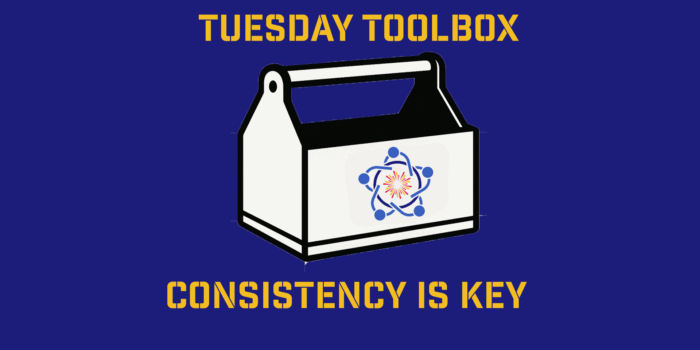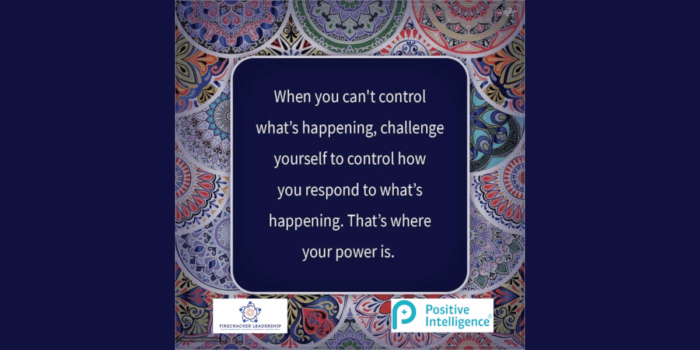My Wednesday Wish for You: Consistency A colleague of mine just won a boxing match. Another finished an Ironman. Neither…
Many leaders have coaches. The good ones coach their people.
Coaching within the workplace, is simply a process of delegating thinking to others. Many leaders put off coaching or think they are coaching when, in fact, there is a lot of “telling” going on. My question to them is: “If not now, when?”
Working a hybrid environment, connection can be stifled. There tends to be a focus on team catch-ups which is great, but this can happen at the expense of 1:1 and group coaching. Either virtually or physically, face-to-face coaching can be done 1:1, formally or informally to a group. Walk and talk coaching is also a great way to maintain wellbeing, get out in the fresh air and connect at a new level.
Coaching is simply delegating thinking, which empowers others and gives you the time back to do what matters!
Last month, I facilitated our “Leader as Coach” program with a senior leadership team, equipping them with deep coaching skills and insight to take back and implement in their organisation. One of the participants asked me for my definition of coaching to which I responded, “It’s like delegating thinking”. Until this point with over 25 years exposure to coaching, both as a coach and being coached, I had never really looked at it like this.
Empowering others to think for themselves and come up with their own solutions is simply delegating thinking.
So how do we do this you may ask?
The first step is to start to ask and not tell, or in other words, coach and make coaching as simple as an everyday conversation.
International Coaching Federation studies have found that organisations that have a solid coaching program in place can enjoy:
- 70% improvement on overall work performance
- 51% increase in team effectiveness
- 80% increase in self-confidence
- 73% had improved relationships at work
- 72% had improvement in their communication skills
- 67% had improved work-life balance
In my early twenties, when working in a large global corporate, I was coached, not that I was as aware of it back then. As I moved into more senior roles, I was taught the art of coaching, and over the years, I grew this muscle exponentially and mastered it as a professional coach. To this day I have a coach and mentor myself, how could I not, and I coach and mentor hundreds of executives and leaders every year as well as train leaders to coach their teams at a high level. With all the exposure I have had working with many leaders, the most successful ones are seen as a coaching resource. The more you coach, the more people will backpedal away from asking you for solutions as they know you will only question them to come up with the answer themselves.
When leading a team or organisation, I see the leader as the conductor of an orchestra. They guide and ensure the instruments hit their notes and harmonise. To be truly leading, you need to be the conductor because if you’re playing an instrument who is guiding the orchestra?
What I have learnt, without giving you a lesson on how to coach, are the below 5 insights that you can instil right now to empower others to think for themselves:
Let go of needing to add value
By letting go of being the all-knowing leader you instil empowerment in others to think for themselves, grow their skillset and in the process, develop futures leaders.
Think about what you are controlling or holding onto that you can delegate to someone else. We tend to hold on to the things we like without even realising they could be delegated. Maybe the next meeting you could get someone else to chair and organise?
Create the space for others to be empowered
I don’t believe you can empower others directly. What I do believe is you can create the space for people to feel empowered and create ownership themselves. Whatever you do, make sure people have the space and choice of how they will achieve tasks. Give them the “what” but not the “how” and stand back and let them go! Check-in where and when needed but ask them what that would look like.
Ask don’t tell
How easy is it to provide the answer when individuals approach you? Take a step back and ask them what solutions they have thought of. Many will say “they don’t know” but don’t buy into this as people are wired to respond to you the way they always have. They usually aren’t stuck but instead are being lazy as they are used to you thinking for them at certain times. Be strong on this and get them to go away and come back with possible solutions and then go from there. This is called “coaching on the fly” and is simply an informal conversation that can happen face to face, over the phone and even by email—a great way to start to build your coaching muscle.
Maximize Team Strengths
Mary isn’t great at reporting, but Dean is strong in this, so how about getting Dean to do the reporting and have Mary assist him? This is a great way for peers to learn from each other and get stuff done without coming to you. I am a huge believer in building a strength-based team by identifying and then leveraging strengths and the things that energise each other. A bit like instruments in an orchestra, it takes all types to play a harmonised tune.
Cut through Communication
People won’t buy into or make a change if there is nothing in it for them.
Understanding others and building rapport is crucial and you need to have conversations that count, that are clear and are with intent. Be a bit like the other person. If he or she loves detail, then be more detailed in your conversation. If they are big picture, then ensure you match this. Don’t change who you are but amplify your energy by 20% to match and fast track rapport. Having a cut through conversation gets the other person to be more open and honest, and trust and respect is built. This will assist in the other person understanding why they need to do what they do and creates ownership and accountability.
More than ever, as leaders, we need to create the space for others to think for themselves. The benefit is that you will get time back to do the things that matter, others will be grow and you will be creating future leaders in the process.



